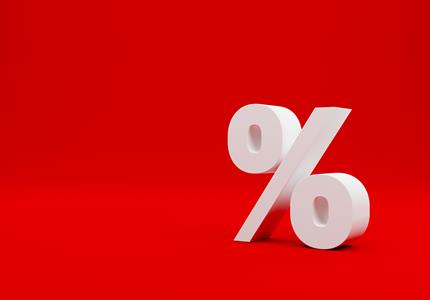

Investment commentary - looking back at 2019
2019 turned out to be a very good year for most asset classes, thanks largely to renewed monetary easing from a number of central banks, most notably the Fed. Better than expected economic and political news also contributed to the more positive sentiment as the US and China appeared to reach a compromise solution to their trade dispute, the fears of a hard Brexit eased after a resounding Conservative election victory and the global economy proved more resilient than expected. The final quarter was especially favourable for global equities and commodity prices, including gold and oil.
Equities enjoyed the biggest gains over the year with the MSCI World Index rising approximately 24% in sterling terms. US stocks performed strongly whilst UK markets rallied hard post the election. Bonds also delivered solid returns during 2019, benefitting from dovish central banks, softer economic activity and subdued inflation. Credit markets produced the strongest gains whilst sovereign bonds also saw positive returns. Sterling finished the year with its best quarter in a decade after Boris Johnson’s unexpected success, rising about 7%.
Looking forward, global growth continues to slow, led by China and Europe, with weaker global trade and industrial production a notable concern. The US is also slowing due largely to the weaker global environment, increased political uncertainty, late cycle pressures and lessening fiscal tail winds. The good news is that the risk of a global recession remain low and hopefully, the growth outlook will stabilise over the next few months thanks to easier financial conditions, a more dovish Fed, additional Chinese easing and a de-escalation of political concerns. However, we should also be very conscious of the changing economic and growing late cycle and political threats, including potential policy error and the recent escalation of tensions in the Middle East, which mean that global growth risks are skewed to the downside. Also, the global economy faces a number of secular trends which will dampen long-term growth prospects, namely ageing demographics, disappointing productivity, rising debt levels, excess savings and weak income growth.
Global inflationary pressures remain subdued and indeed, we believe that global disinflationary forces prevail on a secular basis, largely due to the aforementioned secular trends together with major technological disruption across a large number of industries. These forces mean that global economies and asset markets are far more sensitive to rising interest rates than in previous cycles. Given this background, central banks will err on the side of caution and keep monetary policy easy. They will also remain attuned to financial market volatility and any signs of weaker data or softer inflation with little tolerance for economic pain. Deflation is a very real threat for many economies when the next downturn hits and is also much harder to fix than inflation. Hence, we expect most central banks to remain on hold for the foreseeable future, with a bias towards further easing if required. We also expect many governments to embark on additional fiscal easing policies over the next few years.
Equities have recovered strongly from last year’s growth scare, despite the challenging backdrop. As earnings expectations have been downgraded, valuation multiples have expanded in anticipation of a continuation of the “Goldilocks” scenario where global growth stabilises at a reasonable level, recession is avoided, inflation remains subdued, central banks maintain an easing bias and earnings slow but are not crushed. Provided that a US recession is avoided, markets should continue to enjoy plentiful liquidity and modest growth. From a valuation perspective, this is a mixed picture since some markets, sectors and stocks look expensive whilst others remain cheap on most metrics. In addition, relative to bond yields and interest rates, many markets look reasonable value. Equities can probably overcome the pervasive economic gloom and make further headway over the next six to 12 months, largely because money, credit and liquidity are becoming more expansionary. However, the upside for many markets is probably capped unless global growth re-accelerates, which is unlikely. We are also acutely aware of the growing underlying threats to both the global economy and financial markets, which are creating a more unsettled environment for financial assets.
Relatively stronger growth, superior returns on capital, a more dovish Fed and buoyant share buyback activity continues to favour US equities over other developed markets despite being more expensive. Valuations in many emerging markets also look compelling, although caution is required given a slower China, falling global trade, tighter dollar liquidity and the fragile macro backdrop. We remain positive on our core long-term themes, which include; the growing demand for healthcare services as the population ages and grows; harnessing the world’s growing wealth through investing in consumer staples and consumer discretionary companies; accessing the superior growth in many emerging markets; investing in companies which will drive productivity gains and superior growth in addition to meeting the environmental challenges through technological disruption and innovation.
We expect UK assets, especially equities, to be beneficiaries of the post- election environment. The economic outlook remains uncertain given that the government is keen to conclude a new trade agreement with the EU before the end of the year, which may not be possible. In addition, the UK is not immune to the global macro background and the cyclical and secular trends evident in other developed economies. However, the economy should benefit from the release of pent-up investment and consumption demand, a fiscal stimulus worth £20bn, proposed tax cuts and a supportive Bank of England. Importantly, we believe that most UK companies are cheap in absolute and relative terms and are due a re-rating given valuations, a removal of some of the uncertainty and the fact that both monetary and fiscal policies should be working in tandem to improve the long-term outlook. The market will also likely benefit from increased M&A activity. Hence, we believe that UK equites, and domestically focussed mid and small cap companies, in particular, are an attractive investment opportunity on a long-term view. We also expect further sterling appreciation, assuming that negotiations with Europe proceed as expected.
In conclusion, we remain positive on the outlook for the global economy and financial markets but are conscious of the changing environment and the growing late cycle and political risks. In addition, returns from most asset classes are likely to be lower and harder to come by over the long-term given the changing economic backdrop, expensive valuations and in view of the structural low growth/low inflation outlook. Importantly, interest rates and cash returns are very unlikely to move significantly higher for a long time to come. Hence, hopefully we can continue to deliver attractive returns for our clients through thorough research and active management, even if the market environment remains more challenging, as we expect.
FINANCIAL PROMOTION: The value of investments and the income derived from them may go down as well as up and you may not receive back all the money which you invested. Any information relating to past performance of an investment service is not a guide to future performance.


